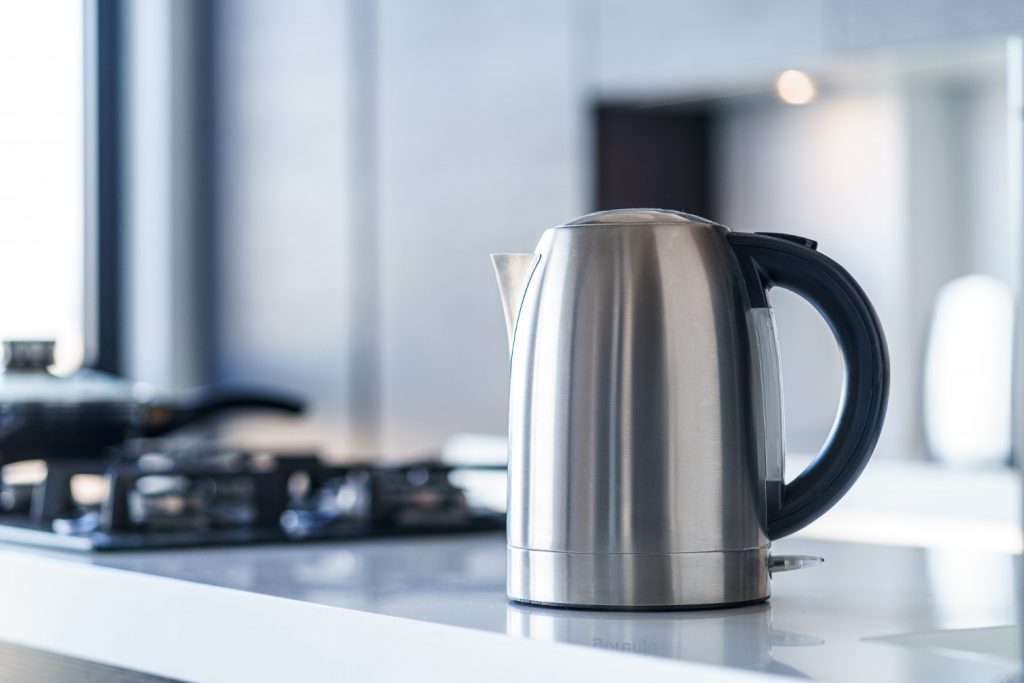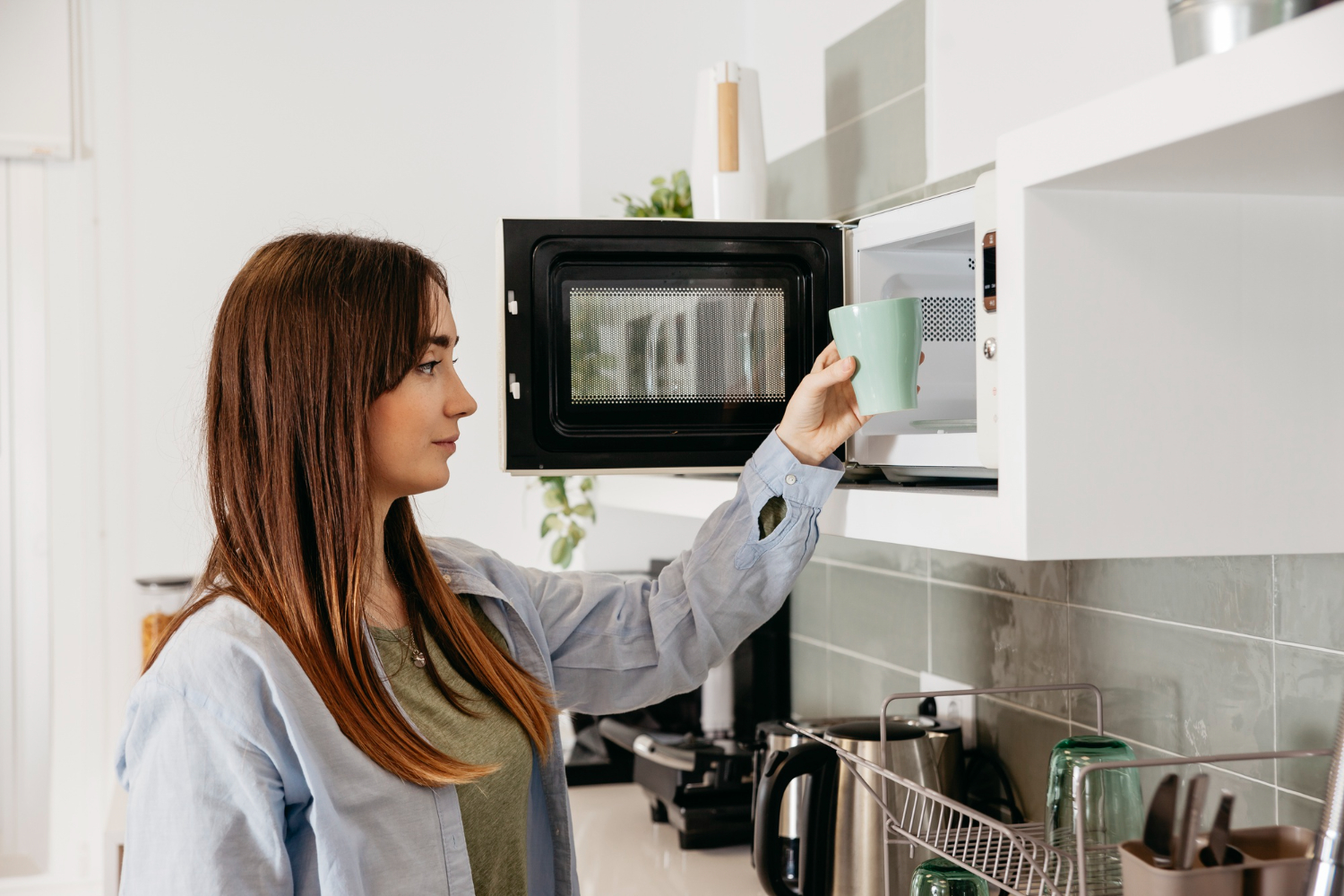Boiling water is considered the basis of all kitchen tasks. And to do it effectively, you might need the right appliance for this. For first-time home users, you may come to consider the first equipment you may want to invest in. Electric kettle provides ease of boiling due to its portability. On the other hand, using a microwave can give you access to multiple ways of reheating your meal unto its desired feature.
While boiling is considered the simplest of kitchen tasks, the cost of energy consumption will make you want to consider what appliance will be the first thing for your kitchen. Which is the cheapest appliance to use: a microwave or a kettle? On this computation, we will not only compute the actual product cost, but we will also consider the monthly consumption of using the said equipment.
Is a Microwave More Efficient Than an Electric Kettle?
Microwaves have provided ease of preparation compared to other kitchen appliances. Aside from reheating, you can use your microwave for several purposes, such as boiling, melting, and searing several food items. However, microwaves are not intended for several cooking methods. In addition, they may cause several stoneware and chinaware to explode despite being microwave safe.
Good factors why you may skip using the microwave includes:
- While microwaves have their built-in timer, there are some instances that it doesn’t stop, although the water is already in its boiling state.
- Suppose you are boiling on for single consumption. In that case, you will also notice how the water drastically decreases—with slight spillage from the microwave. This is because the microwave can cause superheating on any liquid. This reaction results in the quick reduction of juice into vapor.
- Average microwaves have a smaller power supply compared to electric kettle. A cup of water can be boiled within two minutes using a microwave, compared to an electric kettle that only needs about 100 seconds to cook thoroughly.
- Microwaves can only hold a small amount of liquid. So, if you’ll be doing large batches of brewed coffee, it is recommended to use the electric kettle instead.

Does Boiling a Kettle Use a Lot of Electricity?
It will only take the same amount of energy to heat a liter of water no matter what electrical appliances you are using. The only critical factor is the duration and the capacity of each piece of equipment. With these factors considered, we can already infer how boiling using an electric kettle works:
- An electric kettle is more efficient compared to a microwave oven. For example, a microwave oven can lose about 50 percent of liquid during the entire boiling process, compared to an electric kettle that can only reduce not more than 15 percent of overall juice.
- The electric kettle is more efficient than when using a microwave in terms of energy-saving properties. Unlike a microwave, an electric kettle automatically shuts down as soon as the water reaches a boiling point. It will only reheat its own when the water reduced its overall temperature.
- For function, an electric kettle has additional points compared to a microwave. In addition, you can leave your electric kettle for a few minutes, compared to microwaves that require prior attention.
- This appliance is also suitable if you are boiling on large batches. For example, a standard-size electric kettle can accommodate three to five servings of hot beverage, compared to a microwave oven that can only provide a maximum serving for two.
- An electric kettle is suitable for boiling purposes. Microwaves, however, are not recommended for experimental cooking—such as boiling water. Microwave boiling also requires microwave-safe ceramics and plastics, compared to the electric kettle that only needs equipment that can resist high temperatures.
While an electric kettle requires an ample amount of voltage to operate, not all of the energy is discharged into the appliance’s heating coils. As a result, as the electric kettle began heating its own body, some heat radiates outside the system. This heat is released due to the minimal insulation properties of this equipment.
To know how much do you save by using an electric kettle, it a case-to-case basis. Different areas have their varying rate for each consumed watts to their home. Some countries have inexpensive electricity, while some have a double worth of costing compared—but their gas costing is extremely low.
But for an average consumption, an electric kettle only costs less than half of the total energy consumption of a microwave. You can reduce your overall operational cost by unplugging your electric kettle after every use to limit the kettle’s automatic reheating function.
Why Is an Electric Kettle Better Than a Microwave?
Overall, the electric kettle gives the best condition for boiling compared to a microwave. In addition, the said appliance is convenient, has lesser energy consumption, and has temperature regulation to cut down excess costing. Listed below are some of the insights provided by electric kettle users:
- A standard electric kettle can effectively boil water and other liquids faster than a microwave. It can also insulate heat for a longer time, keeping the temperature of your hot beverage longer.
- Because of the electric kettle’s automatic power-off feature, you can quickly distinguish that your water is at the right temperature: not too cold to leave the coffee undissolved and not too hot to burn your tongue and hands.
- Most electric kettles have a safety-off feature, which beats the microwave further. As soon as the liquid reached the right temperature, the electric kettle will stop its heating task. This is convenient and smart compared to the timer-based setting of most microwaves.
- The only downturn of this product is its limited functionality. An electric kettle is limited for boiling purposes alone. However, others try to defy the kettle’s function by cooking eggs, vegetables, and even soup.

